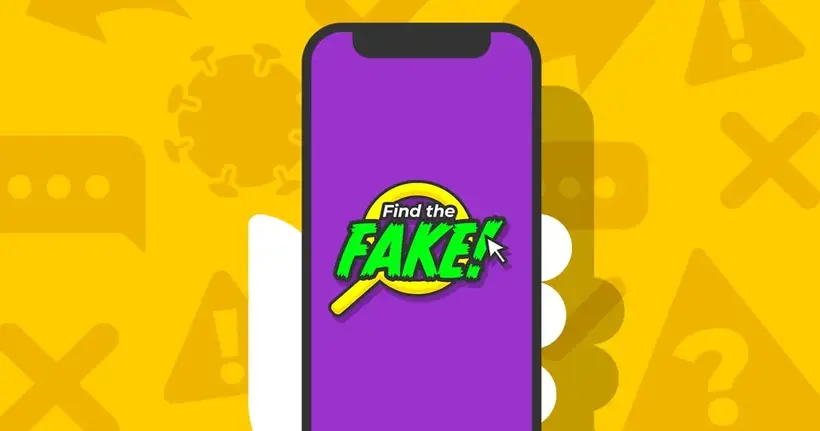Listen to the article
In an era where digital literacy is increasingly crucial, Internet Matters has launched a new interactive quiz designed to help people identify fake news and misinformation online. The “Find the Fake” quiz challenges participants to distinguish between genuine and fabricated content across various digital platforms.
The initiative comes at a time when misinformation continues to spread rapidly through social media channels, messaging apps, and websites. According to recent studies, false information can travel six times faster than factual content on platforms like Twitter, now X, highlighting the scale of the problem facing internet users today.
“The ability to identify misleading or entirely fabricated information has become an essential skill in our digital world,” said a spokesperson from Internet Matters, a non-profit organization focused on keeping children safe online. “Our quiz is designed to sharpen critical thinking skills and raise awareness about the sophisticated tactics used to spread misinformation.”
The quiz presents users with a series of social media posts, news headlines, and digital content, asking them to determine which are authentic and which are fabricated. It covers various forms of misinformation, including manipulated images, misleading headlines, and content taken out of context.
Digital literacy experts have praised the initiative, noting that practical exercises like this quiz can be more effective than theoretical guidance. Dr. Claire Wardle, a leading researcher in the field of misinformation, explained in a recent interview: “People need to practice identifying red flags in real-time. These interactive tools allow users to make mistakes in a safe environment and learn from them.”
The timing of this quiz coincides with growing global concern about the impact of misinformation on public discourse and democratic processes. Several major elections are scheduled around the world in 2024, including in the United States, United Kingdom, and India, making the ability to discern factual information from falsehoods particularly important.
Tech giants like Meta, Google, and Microsoft have also stepped up efforts to combat fake news on their platforms, implementing various fact-checking partnerships and algorithmic adjustments. However, experts argue that platform-level interventions must be complemented by improved user education.
“Technology companies have a responsibility to limit the spread of harmful content, but individuals also need the tools to make informed judgments about what they see online,” said Professor Sonia Livingstone from the London School of Economics, who specializes in media literacy and digital rights.
The quiz incorporates examples from current events, celebrity news, health information, and scientific claims – all areas particularly vulnerable to misinformation campaigns. Upon completion, users receive personalized feedback on their performance along with practical tips for spotting fake content in the future.
Internet Matters recommends several strategies for identifying potential misinformation, including checking multiple sources, verifying dates and context, examining URLs for suspicious domains, and being wary of content designed to provoke strong emotional reactions.
Education systems worldwide are increasingly incorporating digital literacy into their curricula, recognizing its importance for the next generation. Several countries, including Finland and Sweden, have already implemented comprehensive programs teaching students how to navigate the complex information landscape.
The “Find the Fake” quiz is freely accessible on the Internet Matters website and is suitable for both adults and teenagers. The organization has also developed accompanying resources for parents and educators who wish to use the quiz as a teaching tool.
As misinformation techniques continue to evolve, with deepfakes and AI-generated content presenting new challenges, tools like this quiz will need regular updates to remain relevant. Internet Matters has committed to refreshing the content periodically to reflect emerging trends and techniques in the misinformation landscape.
“This isn’t just about avoiding being fooled,” the Internet Matters spokesperson added. “It’s about fostering a healthier information ecosystem where credible sources can be recognized and valued.”
Verify This Yourself
Use these professional tools to fact-check and investigate claims independently
Reverse Image Search
Check if this image has been used elsewhere or in different contexts
Ask Our AI About This Claim
Get instant answers with web-powered AI analysis
Related Fact-Checks
See what other fact-checkers have said about similar claims
Want More Verification Tools?
Access our full suite of professional disinformation monitoring and investigation tools




8 Comments
Interesting that false information can spread so much faster than the truth on social media. Speaks to the need for better media literacy education, especially for younger generations. This quiz could be a useful tool in that regard.
Absolutely. Equipping people with the critical thinking skills to spot misinformation is crucial. Looking forward to seeing the quiz in action and how effective it is.
In an age of information overload, having the critical faculties to identify fabricated content is essential. This quiz sounds like a practical way to put those skills to the test. Curious to see how it’s received and what kind of impact it has.
With the rise of AI-generated content, the ability to distinguish real from fake is increasingly important. This online quiz seems like a valuable resource to hone those skills. Looking forward to seeing how effective it is at challenging participants.
Agreed, the surge of AI-driven misinformation makes discernment even more crucial. A quiz like this could be a good way to stay ahead of those deceptive tactics.
This is an important initiative to combat the rise of online misinformation. Developing digital literacy skills is crucial in today’s media landscape. I’m curious to try out the quiz and see how well I can identify fake content.
Agreed, being able to discern fact from fiction online is a vital skill these days. The quiz sounds like a great way to test and improve those capabilities.
The statistics on how quickly misinformation can spread are quite alarming. This quiz sounds like a proactive way to address that challenge and help internet users develop more discerning digital literacy. Definitely a worthwhile initiative.